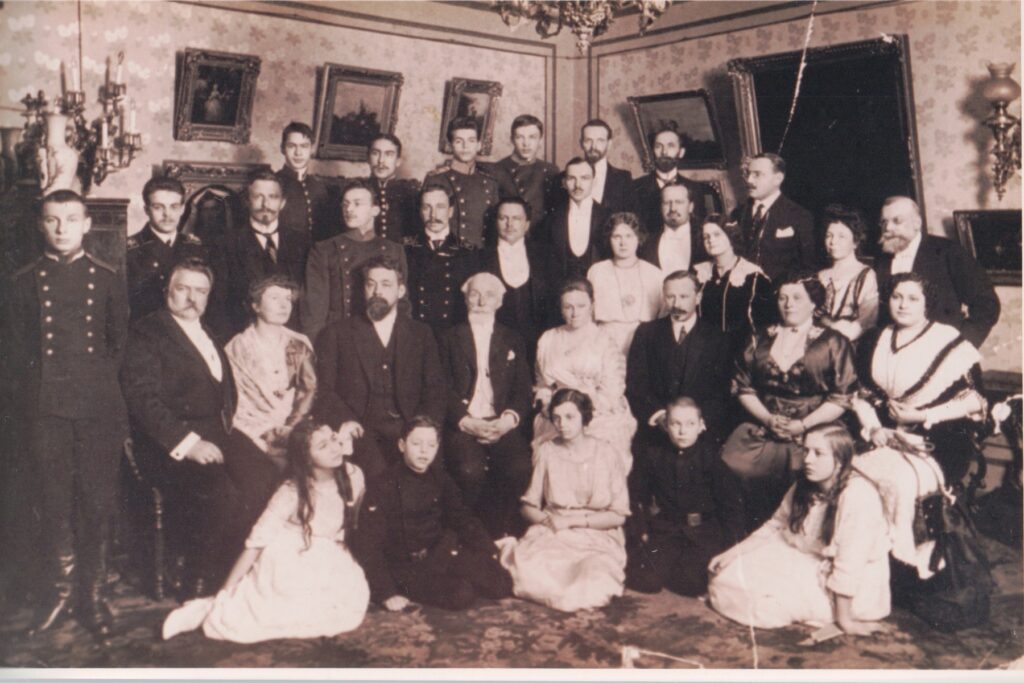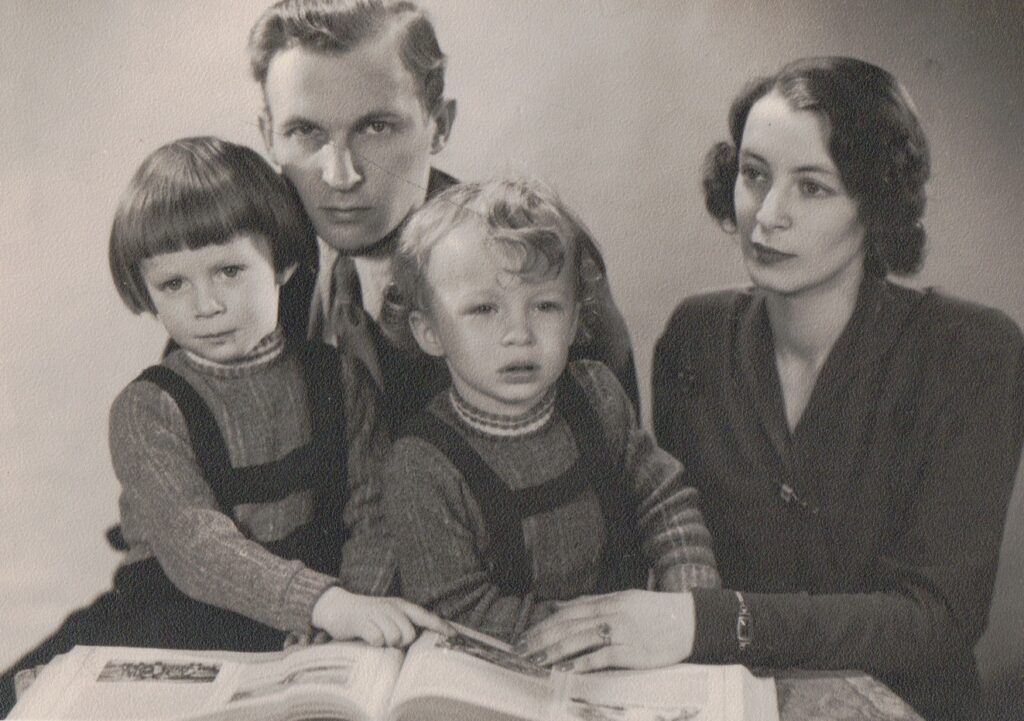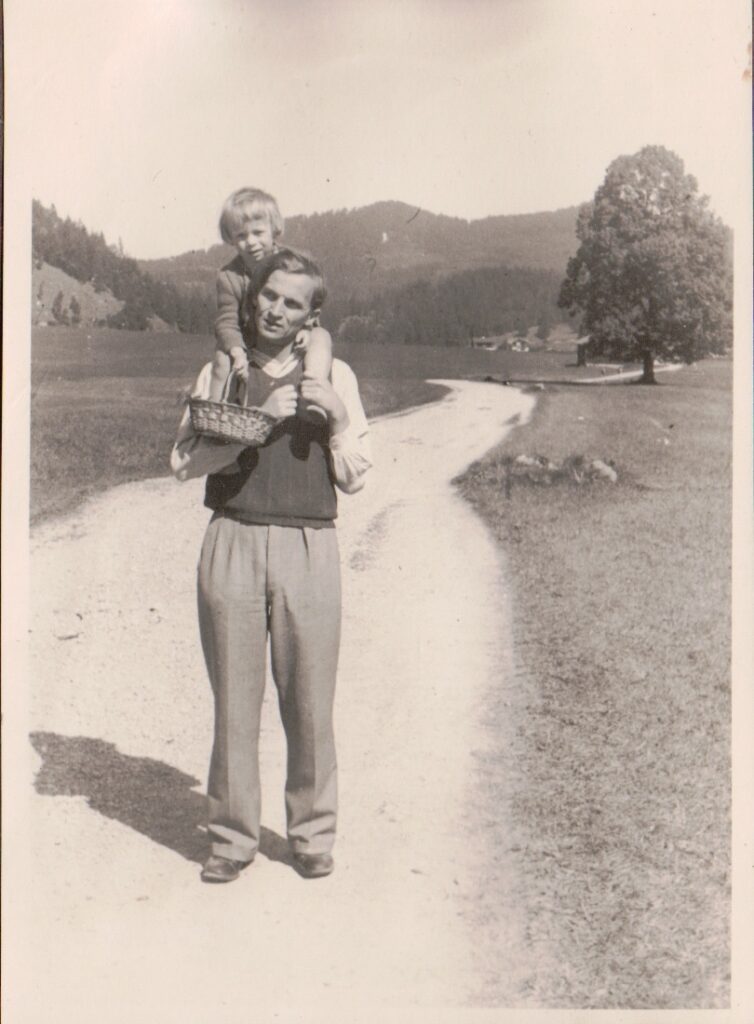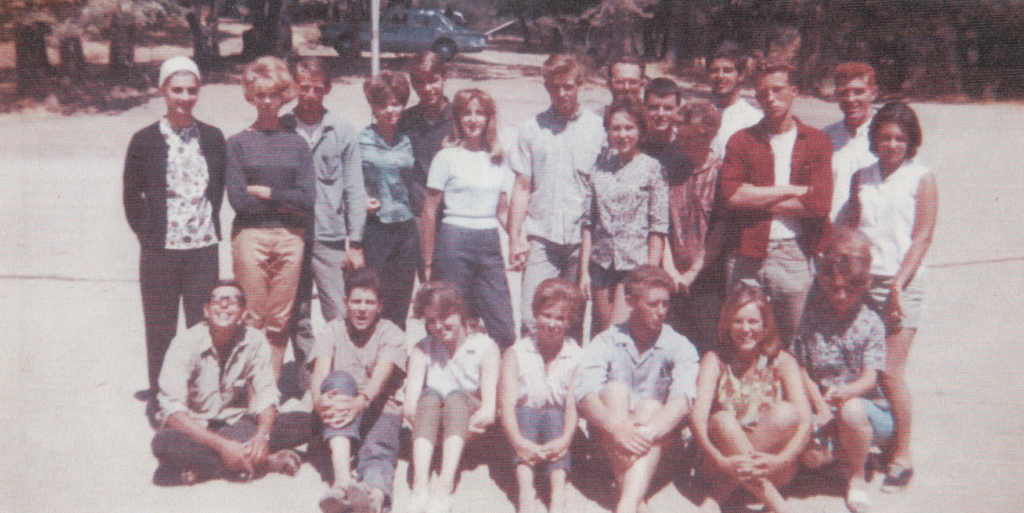
Anna & George Derugin
George Derugin, a retired banker from San Francisco, has lived with his second wife Anna in Clackamas, Oregon since 2010. The son of Russian émigrés, George spent part of his childhood in Munich. His father, a professor at the University of Berlin, was born in 1915 in St. Petersburg to Georgiy Mikhailovich Derugin, a member of the State Duma. At the start of the Russian Revolution in 1917, Georgiy Mikhailovich fled his office in St. Petersburg and boarded a train to Finland, never to return to Russia. He and his family settled in Berlin, where George’s father would meet his mother, a descendant of one of the most prominent families in Russia at the time, the Shakhovskoys. She was brought to Berlin via Yugoslavia by Adolf Hitler’s forces – fluent in six languages, she was required to do translation work for Germany. George spent the first decade of his life in Germany. He was born in Berlin but moved to Munich when he was two years old. George’s parents fled their home in Berlin in 1946 as Soviet forces drew near. Along with other families, George and his parents took the last available train out of the city. Of the 26 other children on the train, George and another child were the only ones to survive the journey. Most died due tostarvation and cold temperatures. Life was not easy in Munich. George faced harsh mockery there for his Russian heritage. He was called names, teased, and got into fights. His two brothers were born after they arrived in the American zone in Munich. The Derugins were able to practice Orthodox Christianity in Germany, a faith which consistently played a large role in the family’s life.
Convinced that Soviet forces would take over all of Western Europe, George’s father sought to relocate the family to New York, NY as soon as he could after the end of World War II. He was able to make their arrangements because of his previous work as an economic advisor to American occupation forces and because he spoke fluent English. The family did not stay for very long in New York. They relocated to Los Angeles shortly after immigrating. There, George’s father taught at the University of Southern California. While George had hoped that coming to America would ease the unfairness he was subjected to due to his heritage, he arrived during the McCarthy era, and was made fun of for being a “commie” by his peers. George spent the rest of his childhood in Los Angeles and when his family moved north to San Francisco, he eventually followed. He spent the next 50 years of his life in San Francisco, where he completed his undergraduate and graduate work, and worked as a Vice President in banking. George also met his first wife and had two children while in San Francisco. After his divorce, George met his current wife, Anna, through his Orthodox Church in San Francisco.
Anna Nikolaevna Derugina, also a Russian-speaker, had a decidedly different process of immigration to America than George. Born to an impoverished family in the Cherkas’ka oblast’ of central Ukraine in 1954, Anna, like George, worked hard to succeed. She attended university in Ukraine to study economics. There she met her first husband, with whom she had a son and daughter. Anna ran her own business in the area, and while things went smoothly for a time, the break-up of the Soviet Union brought hard times to Ukraine. During this time, the mafia became more and more powerful, demanding payments from businesses and exerting more and more control economically. Life became increasingly difficult; Anna’s daughter became ill and access to basic products like milk, bread, and meats became difficult. People were forced to stand in line from 5 or 6 in the morning for hours waiting for the depleted stores to open.
Anna’s immigration story is one of chance. Upon visiting friends in San Francisco in 2000, Anna received word that returning to Ukraine would be too dangerous. The news came as a shock. Anna had no way of returning to her home, where her children and business remained. Staying in America presented many challenges for Anna. She knew few people and barely spoke English. Luckily, her acquaintances in the Jewish community helped and supported her. Her transition was further eased after joining a Russian Orthodox church in San Francisco, where she made friends and met George. Although things improved for Anna, she was still separated from her closest relatives and community in Ukraine, including her children, two sisters, and mother.
George and Anna returned to Russia to get married in St. Petersburg. The two settled in San Francisco for a time until their decision to move to Oregon in 2010. After retiring, the couple sought a slower-paced lifestyle and chose Oregon for its beauty and low key environment. In Oregon, they established themselves just outside of Portland in Clackamas. The Orthodox Church continued to play a large role in their life; after visiting many of the churches in the area they chose the Church of the Annunciation in Milwaukie, in part due to their respect for its priests. The Church of the Annunciation, part of the Orthodox Church in America, conducts their services primarily in English. While Anna finds it easier to follow services in Russian, the two attend services every week and consider themselves strongly church-oriented. George is now retired, and Anna spends her time as a homemaker.
This story is written by Anna McClain and it is based on the interview Anna conducted with George and Anna Derugin in Clackamas, OR, on July 26, 2014

The Derugin and Lozina-Lozinsky Families in St. Petersburg, 1914 (George’s grandfather is the
third from the left with a goatee)
George (left) with his
brother Boris and parents in Germany in the late 1940s
George and his father near Munich in the late 1940s 
Camp Counselors at an OCA Summer Camp (George is the third from left in the back) 1963
